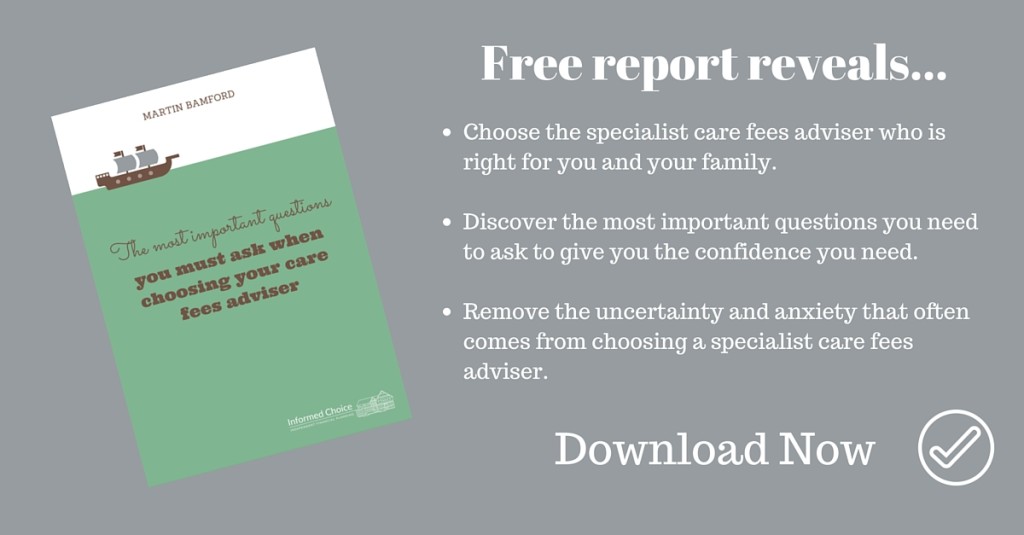 The introduction of a cap on care fees will be delayed until 2020, following an announcement from the Department of Health.
The introduction of a cap on care fees will be delayed until 2020, following an announcement from the Department of Health.
The cap was due to be introduced in April 2016 at a level of £72,000.
It is being delayed due to concerns it will cost £6bn to implement over the next five years.
Announcing the delay, the government said that it could not afford to make “expensive new commitments like this” during a time of austerity.
It’s worth keeping in mind that the cap was not going to count towards any ‘hotel costs’ associated with care.
It would also have been calculated based on local authority funding rates, rather than the actual amount paid by self-funders for care costs.
A couple of years ago, some analysis by the Labour party in Lancashire found that nine out of ten elderly people in the region will have died before they reach the lifetime cap.
Commenting on the delay to its introduction, Jim Boyd, Director of Corporate Affairs at Partnership, one of the insurance companies which offers care fees planning products, said:
“With an estimated 150,000 people entering care each year, the introduction of the Care Bill was supposed to provide them with a consistent framework in which to make concrete plans around care funding.
“The delay of the introduction of the ‘Care Cap’ to 2020 will therefore be a blow to them and their families who will need to continue to pay an average of £28,600 per year.
“However, this will come as a huge relief for the Local Authorities who are reeling under the impact of budget cuts and already face a significant demand for care needs assessments.
“At a time of fiscal constraint it is not surprising that this expensive proposal has been delayed but the risk is that it may well disappear which may create further uncertainty.
“At the moment, those who are looking for the opportunity to cap their liabilities but secure a guaranteed income for life while in care have the option to choose an immediate needs care annuity.
“These products continue to fulfil a critical need – one which is sure to grow as the population ages.”
We think that just about sums it up.
Those paying for care, either at home or in a residential care home, will continue to need expert and independent financial advice in order to understand the costs and create a plan to ensure they don’t run out of money.


